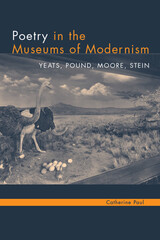Cloth: 978-0-674-99001-2
Apollonius was a Greek grammarian and epic poet of Alexandria in Egypt and lived late in the 3rd century and early in the 2nd century BCE. While still young he composed his extant epic poem of four books on the story of the Argonauts. When this work failed to win acceptance he went to Rhodes where he not only did well as a rhetorician but also made a success of his epic in a revised form, for which the Rhodians gave him the 'freedom' of their city; hence his surname. On returning to Alexandria he recited his poem again, to applause. In 196 Ptolemy Epiphanes made him the librarian of the Museum (the university) at Alexandria.
Apollonius's Argonautica is one of the better minor epics, remarkable for originality, powers of observation, sincere feeling, and depiction of romantic love. His Jason and Medea are natural and interesting, and did much to inspire Virgil (in a very different setting) in the fourth book of the Aeneid.
See other books on: Ancient & Classical | Apollonius Rhodius | Argonautica | Literary Criticism
See other titles from Harvard University Press












